Embracing The Festive Spirit: A Guide To Christmas Writing Activities
Embracing the Festive Spirit: A Guide to Christmas Writing Activities
Related Articles: Embracing the Festive Spirit: A Guide to Christmas Writing Activities
Introduction
In this auspicious occasion, we are delighted to delve into the intriguing topic related to Embracing the Festive Spirit: A Guide to Christmas Writing Activities. Let’s weave interesting information and offer fresh perspectives to the readers.
Table of Content
Embracing the Festive Spirit: A Guide to Christmas Writing Activities

The holiday season, especially Christmas, is a time for celebration, reflection, and joy. It is a period where families gather, traditions are upheld, and the spirit of giving is amplified. This festive atmosphere provides a fertile ground for creative expression, and what better way to capture the essence of Christmas than through writing?
Christmas writing activities offer a unique opportunity to explore themes of warmth, generosity, and the magic of the season. They encourage imagination, foster creativity, and provide a platform for self-expression. Engaging in these activities can be immensely rewarding, allowing individuals to tap into their inner storyteller and create meaningful narratives that resonate with the spirit of Christmas.
A Comprehensive Exploration of Christmas Writing Activities:
This comprehensive guide will delve into the diverse world of Christmas writing activities, offering a detailed exploration of their various forms and benefits. It aims to provide readers with a clear understanding of the potential of these activities, highlighting their educational, therapeutic, and creative value.
1. Narrative Writing:
Narrative writing forms the bedrock of many Christmas writing activities. It involves crafting stories that capture the essence of the holiday season, encompassing themes of family, tradition, generosity, and the joy of giving.
a. Christmas Memories:
One popular narrative writing activity involves reminiscing about cherished Christmas memories. This activity encourages individuals to delve into their past, recalling heartwarming moments and emotions associated with the holiday.
-
Benefits: This activity fosters a sense of nostalgia, strengthens family bonds, and helps individuals appreciate the significance of traditions. It also promotes reflection on personal growth and the evolution of holiday celebrations over time.
-
Examples:
- A story about a cherished Christmas tradition, such as decorating the Christmas tree or baking cookies with family.
- A recollection of a specific Christmas gift that held significant meaning.
- A narrative about a memorable Christmas gathering with loved ones.
b. Christmas Wishes:
Another engaging narrative activity involves writing about Christmas wishes. This activity allows individuals to express their hopes and aspirations for the future, highlighting their personal values and goals.
-
Benefits: This activity promotes positive thinking, encourages goal setting, and provides a platform for self-reflection. It allows individuals to visualize a brighter future and explore their aspirations.
-
Examples:
- A story about a child’s wish for a specific toy or a special experience.
- A narrative about an adult’s wish for peace, happiness, or a fulfilling career.
- A story about a community’s wish for unity, prosperity, or a brighter future.
c. Christmas Stories:
Creating original Christmas stories offers a platform for imagination and creativity. These stories can range from heartwarming tales of generosity and compassion to fantastical adventures involving magical creatures and festive settings.
-
Benefits: This activity stimulates imagination, develops storytelling skills, and encourages creative thinking. It allows individuals to explore various themes and characters, shaping their own unique narratives.
-
Examples:
- A story about a lost toy finding its way back home for Christmas.
- A narrative about a magical Christmas Eve adventure in a snowy forest.
- A story about a group of friends coming together to help someone in need during the holiday season.
2. Descriptive Writing:
Descriptive writing focuses on creating vivid and evocative descriptions of people, places, and experiences associated with Christmas. It utilizes sensory details to paint a picture in the reader’s mind, immersing them in the festive atmosphere.
a. Christmas Scenes:
Describing Christmas scenes allows individuals to capture the visual, auditory, and olfactory sensations of the holiday. This activity encourages observation and attention to detail, enhancing the reader’s understanding of the scene.
-
Benefits: This activity enhances descriptive writing skills, promotes sensory awareness, and allows individuals to appreciate the beauty and richness of the holiday season.
-
Examples:
- A description of a snow-covered Christmas Eve, capturing the silence and serenity of the night.
- A vivid portrayal of a bustling Christmas market, highlighting the sights, sounds, and aromas of the festive gathering.
- A detailed description of a beautifully decorated Christmas tree, emphasizing its twinkling lights and ornaments.
b. Christmas Characters:
Describing Christmas characters allows individuals to explore the personalities, motivations, and actions of people associated with the holiday. This activity encourages empathy and understanding, fostering a deeper connection with the characters.
-
Benefits: This activity enhances character development skills, promotes empathy and understanding, and allows individuals to explore different perspectives on Christmas.
-
Examples:
- A description of Santa Claus, highlighting his jolly personality, magical abilities, and generosity.
- A portrayal of a grumpy Scrooge, capturing his transformation from miserliness to compassion.
- A detailed description of a kind-hearted neighbor, emphasizing their generosity and willingness to help others during the holidays.
3. Poetry Writing:
Poetry writing offers a unique avenue for expressing emotions, thoughts, and experiences related to Christmas. It allows individuals to use figurative language, rhythm, and rhyme to convey the essence of the holiday.
a. Christmas Sonnets:
Writing Christmas sonnets provides a structured framework for expressing emotions and observations about the holiday. The sonnet form, with its specific rhyme scheme and meter, adds a layer of artistry and complexity to the poem.
-
Benefits: This activity enhances poetic skills, promotes creativity, and allows individuals to explore the themes of love, joy, and reflection through a structured format.
-
Examples:
- A sonnet about the beauty of a snowy Christmas morning.
- A poem exploring the joy of family gatherings during the holiday season.
- A sonnet reflecting on the true meaning of Christmas beyond material gifts.
b. Christmas Haiku:
Writing Christmas haiku allows individuals to capture the essence of the holiday in a concise and evocative manner. The haiku form, with its strict syllable count, encourages brevity and precision in language.
-
Benefits: This activity enhances conciseness and precision in writing, promotes creativity, and allows individuals to express their emotions and observations in a compact format.
-
Examples:
- A haiku about the twinkling lights of a Christmas tree.
- A poem capturing the warmth and joy of a Christmas Eve gathering.
- A haiku reflecting on the spirit of giving during the holiday season.
4. Journal Writing:
Journal writing provides a platform for personal reflection and self-expression during the Christmas season. It allows individuals to explore their thoughts, feelings, and experiences related to the holiday.
a. Christmas Reflections:
Journaling about Christmas reflections encourages individuals to examine their feelings, beliefs, and values in relation to the holiday. This activity promotes self-awareness and introspection.
-
Benefits: This activity enhances self-reflection, promotes emotional processing, and allows individuals to understand their personal connection with Christmas.
-
Examples:
- Journal entries about the meaning of Christmas to the individual.
- Reflections on the importance of family and tradition during the holiday season.
- Thoughts on the impact of Christmas on personal growth and well-being.
b. Christmas Gratitude:
Journaling about Christmas gratitude encourages individuals to focus on the positive aspects of the holiday season. This activity promotes appreciation and fosters a sense of contentment.
-
Benefits: This activity enhances gratitude, promotes positive thinking, and allows individuals to recognize and appreciate the blessings in their lives.
-
Examples:
- Journal entries listing things they are grateful for during Christmas.
- Reflections on the joy and happiness experienced during the holiday season.
- Thoughts on the kindness and generosity shown by others during Christmas.
5. Creative Writing Prompts:
Creative writing prompts provide a framework for sparking imagination and encouraging creative expression. These prompts can be tailored to specific themes, characters, or settings related to Christmas.
a. Christmas Story Prompts:
Christmas story prompts provide a starting point for creating original narratives. They can involve specific characters, settings, or events that inspire the story.
-
Examples:
- A prompt about a lost Christmas ornament finding its way back to the tree.
- A story about a magical Christmas Eve adventure in a snow-covered village.
- A narrative about a group of friends discovering a hidden treasure on Christmas Day.
b. Christmas Poetry Prompts:
Christmas poetry prompts provide inspiration for writing poems about the holiday. They can focus on specific themes, imagery, or emotions related to Christmas.
-
Examples:
- A prompt about the beauty of a snowy Christmas landscape.
- A poem about the joy of family gatherings during the holiday season.
- A poem exploring the true meaning of Christmas beyond material gifts.
c. Christmas Descriptive Writing Prompts:
Christmas descriptive writing prompts encourage individuals to create vivid descriptions of people, places, and experiences related to the holiday. They can focus on specific sensory details, settings, or characters.
-
Examples:
- A prompt about describing a bustling Christmas market.
- A description of a beautifully decorated Christmas tree.
- A portrayal of Santa Claus as he prepares for his Christmas Eve journey.
The Importance of Christmas Writing Activities:
Engaging in Christmas writing activities offers a multitude of benefits, both personal and educational. They provide a platform for self-expression, foster creativity, and promote a deeper understanding of the holiday season.
1. Educational Value:
Christmas writing activities can enhance language skills, improve writing fluency, and stimulate creative thinking. They encourage individuals to explore various writing styles, experiment with different genres, and develop their vocabulary.
2. Therapeutic Value:
Christmas writing activities can be therapeutic, providing an outlet for emotional processing, reflection, and self-discovery. They allow individuals to explore their feelings, beliefs, and values in relation to the holiday season, fostering a sense of well-being and personal growth.
3. Creative Expression:
Christmas writing activities provide a platform for creative expression, allowing individuals to tap into their imagination and create original narratives, poems, and descriptions. They encourage exploration of themes, characters, and settings related to the holiday, fostering a sense of artistic fulfillment.
4. Family Bonding:
Christmas writing activities can strengthen family bonds, providing a shared experience that encourages communication, creativity, and shared memories. They can be enjoyed by individuals of all ages, fostering a sense of connection and shared purpose.
FAQs about Christmas Writing Activities:
Q: What are some tips for encouraging children to participate in Christmas writing activities?
A:
- Make it fun and engaging: Use colorful paper, festive decorations, and fun prompts to capture their attention.
- Start simple: Begin with simple prompts and gradually introduce more complex activities.
- Encourage collaboration: Let them work together on stories or poems, sharing ideas and brainstorming.
- Celebrate their efforts: Praise their creativity and encourage them to share their work with others.
Q: Can Christmas writing activities be used for therapeutic purposes?
A: Yes, Christmas writing activities can be used as a therapeutic tool for individuals of all ages. They provide a safe and expressive outlet for exploring emotions, processing experiences, and fostering a sense of well-being.
Q: How can I incorporate Christmas writing activities into my classroom?
A:
- Use them as creative writing assignments: Assign prompts related to Christmas themes, characters, or settings.
- Integrate them into holiday celebrations: Encourage students to write poems, stories, or descriptions about their favorite Christmas traditions.
- Create a classroom writing center: Provide writing materials, prompts, and examples to encourage independent writing activities.
Tips for Christmas Writing Activities:
- Embrace the festive spirit: Let the joy and warmth of the holiday season inspire your writing.
- Use sensory details: Incorporate vivid descriptions of sights, sounds, smells, tastes, and textures to enhance your writing.
- Explore different genres: Experiment with narrative, descriptive, poetic, and journal writing to broaden your writing skills.
- Share your work: Share your writing with others, either through online platforms, social media, or personal gatherings.
- Reflect on your experiences: Use writing as a tool for self-reflection, exploring your thoughts, feelings, and values related to Christmas.
Conclusion:
Christmas writing activities offer a unique and rewarding way to embrace the spirit of the holiday season. They provide a platform for creativity, self-expression, and personal growth. By engaging in these activities, individuals can explore themes of joy, generosity, and the magic of Christmas, creating lasting memories and fostering a deeper appreciation for the festive spirit. Whether you are a seasoned writer or just starting out, Christmas writing activities offer a fun and fulfilling way to express your creativity and celebrate the holiday season.
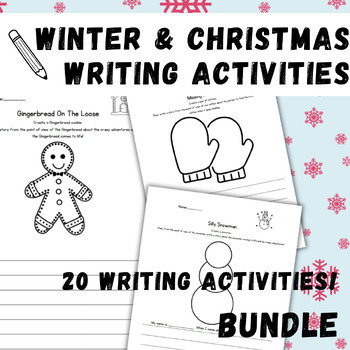

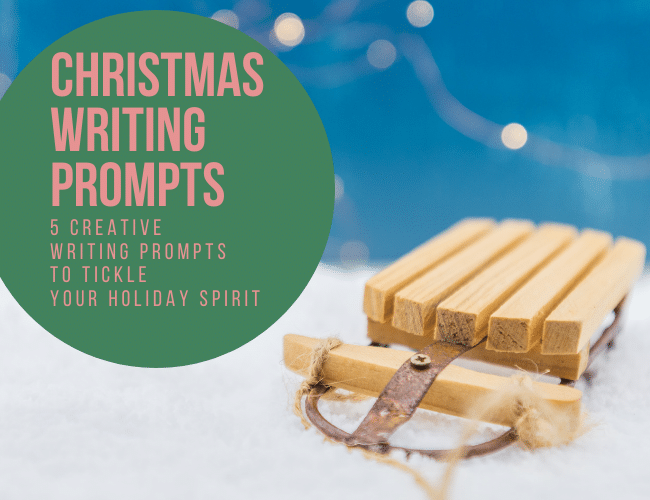

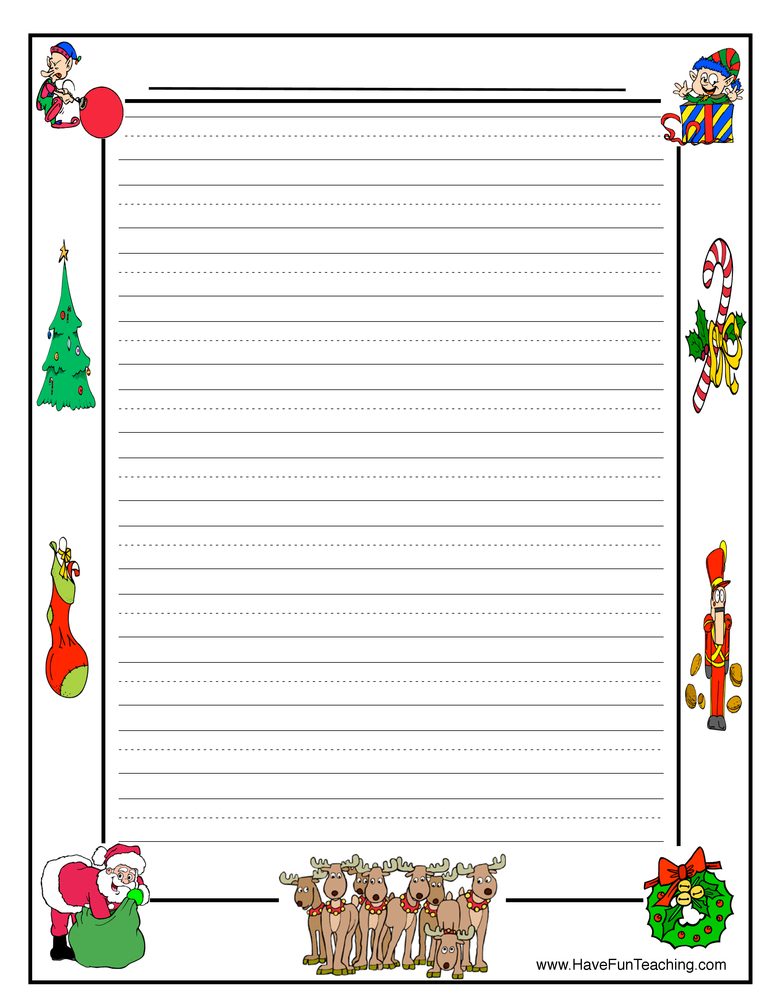

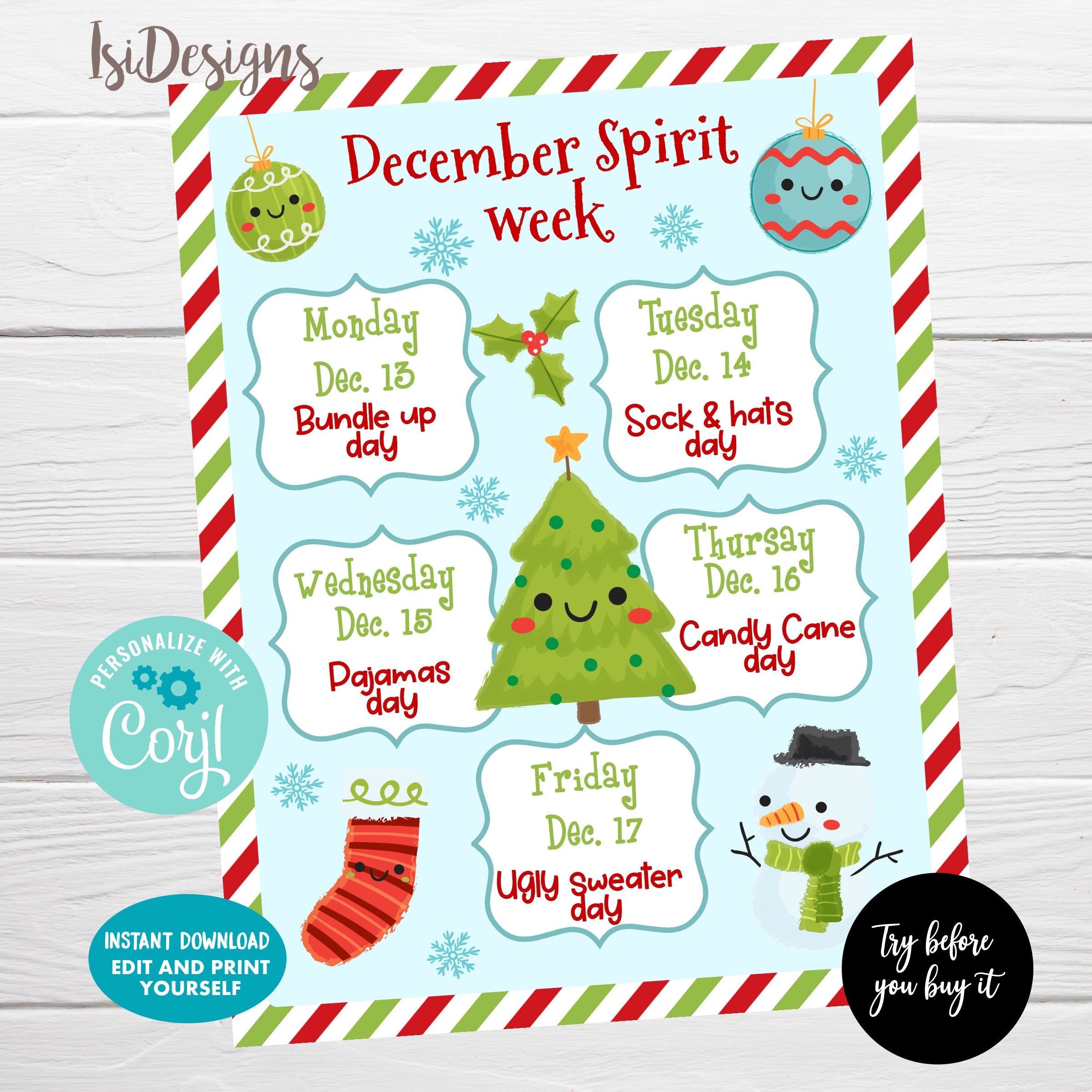
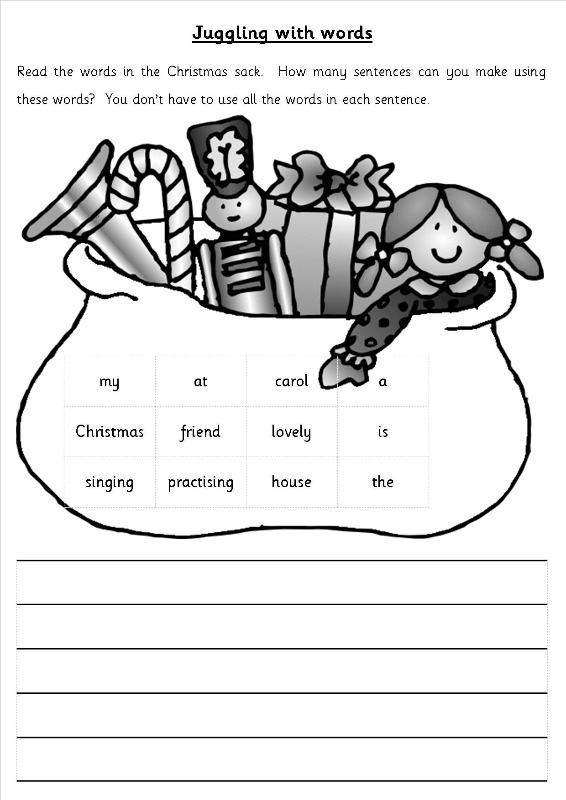
Closure
Thus, we hope this article has provided valuable insights into Embracing the Festive Spirit: A Guide to Christmas Writing Activities. We appreciate your attention to our article. See you in our next article!
Leave a Reply